What Am I Searching for by Watching Reality TV About Ghosts?
Mary Durocher reviews her fascination with ghosts and how it relates to and helps temper the terror of the pandemic.
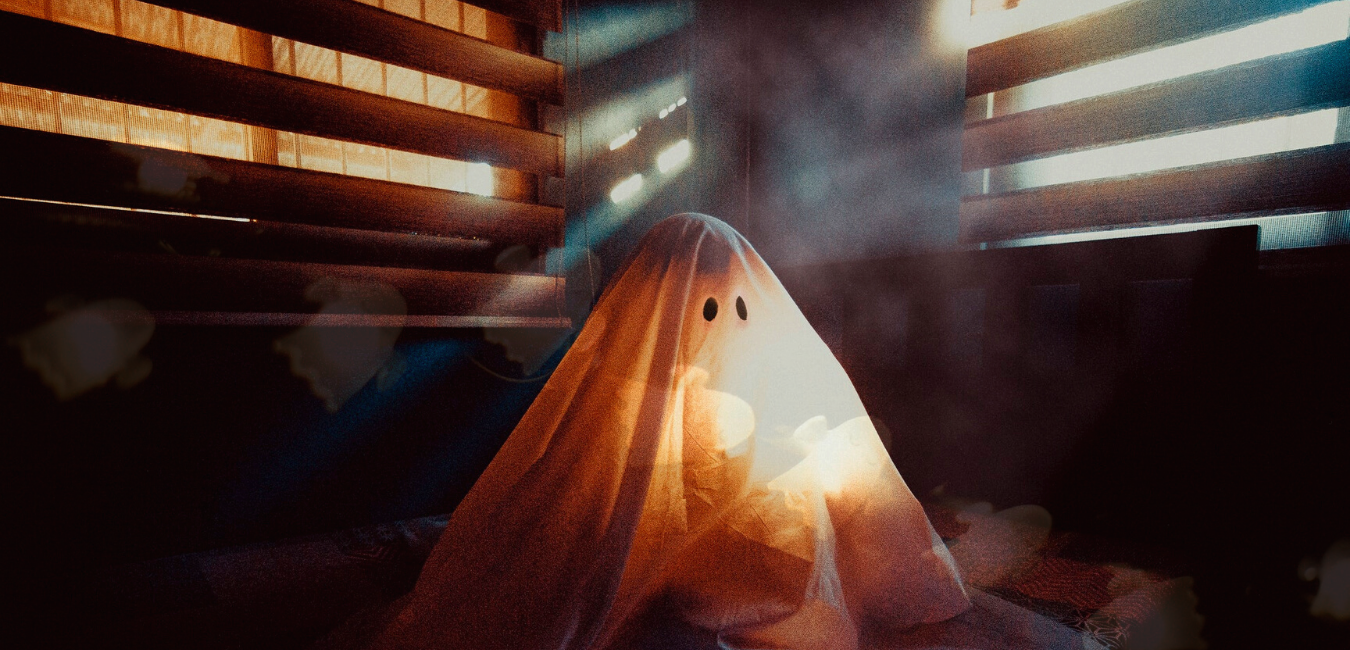
I pride myself on not being easily frightened. As a kid, I never got faint-hearted when all the night lights shut off. My mom would buy me local books on the ghost stories of New York’s Capital Region, and I would read the book in a day and then soundly sleep at bedtime. The older I got, the more this attitude transcended from not fearing Halloween stories to being viewed as a risk taker. Though I was naturally shy, I clung to the opportunity to adventurous, bold, daring even. I was certain of a future full of traveling, writing, and exploring New York City. I could have held the map of my future in my hands, convinced of each of my next steps and unintimidated by the universe’s ability to shift entire lives in a millisecond.
My shift (and many people’s) was the eruption of the Covid-19 in March of 2020 which followed with a multiple month-long lockdown. In the past, I had experienced small, intense bouts of anxiety. (I once experienced a panic attack after an Algebra exam in my high school parking lot). But I always seemed to have a grip on my anxiety, it had not ever tumbled out of control. During quarantine however, anxiety morphed from being an occasional issue to a consuming reality. The world outside my family’s home was gray and bleak. There was nothing to do but regularly update the New York Times Covid-19 numbers and read countless articles that didn’t make the global crisis clearer.
The first time I truly got scared was when I caught Covid-19. My body has betrayed me, I thought. I ran a low-grade fever, my muscles throbbed, I was continually dizzy, and at night it became more difficult to breathe. I spiraled and became convinced my family was going to have to bring me to the hospital. It felt impossible to rest. The usual sick remedies: chicken soup, taking a nap, reading a book, didn’t suffice. The only time I was absorbed in something other than the virus was when my family and I would sit in the living room each night and watch reruns of Syfy’s original Ghost Hunters television series.
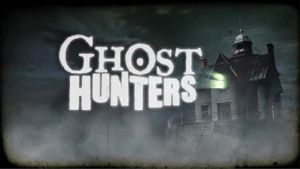
A reality T.V. show about ghosts was an odd, personal healing salve for a pandemic that’s thrown us all into uncertainty. Even the premise of pursing intangible entities half the population doesn’t believe exist and then putting it on television is ironic. But I think it was the Ghost Hunters team’s ability to confront this paradox of not knowing that gave me comfort during those dreary, anxious evenings of quarantine.
To understand the unique approach of Ghost Hunters, I had to investigate their history. Before the TV series, the team from Ghost Hunters originated from the Atlantic Paranormal Society. The paranormal society was founded by Jason Hewes and Grant Wilson in 1990, who both held down day jobs as plumbers. On the TAPS website their mission states, ‘‘TAPS promises to bring professionalism, personality, and confidentiality to each case we investigate.’’ TAPS continues to emphasize their legitimacy, writing, ‘‘We are not amateurs. We have had extensive experience. Part of what we have learned is the psychology of making someone feel comfortable during these times of fear and uncertainty.’’ I found this to be a nice sentiment but as a skeptic and pessimist, I was more interested in how much TAPS charges families and historians for their services. TAPS refuses to accept any monetary compensation. Although lack of a fee doesn’t guarantee TAPS isn’t a scam, it encouraged me to explore beneath Ghost Hunters' surface.

The personality of the team members and their ghost hunting tactics also diverged from other flashy paranormal reality series I had casually watched in the past. I respected the way the TAPS team didn’t beef up any of the ghost drama on the show. If no paranormal evidence turned up at the end of an investigation, Jason and Grant didn’t spend five minutes convincing viewers that the shadow of a tree branch was an otherworldly spirit. In the earlier seasons, TAPS’ purpose to debunk supernatural claims was emphasized.
The episodes of SyFy’s GhostHunters my family and I watched originally aired in 2004. It’s almost impossible to find the series anywhere on the internet. It doesn’t stream on any platform, there are no YouTube clips, and I couldn’t buy the first couple of seasons on Google Play. All I had were reruns and an obscure Wikipedia page dedicated to Ghost Hunters. My family and I caught random clusters of episodes at night on A&E. Despite the disorder, each investigation followed the same format. The TAPS team is hired by a family or historical organization concerned with the supernatural activity. In the span of an episode, TAPS investigates (which is conducted at night because ghosts apparently don’t exist during the day) and tries to collect evidence to proves or disproves a ghostly presence.
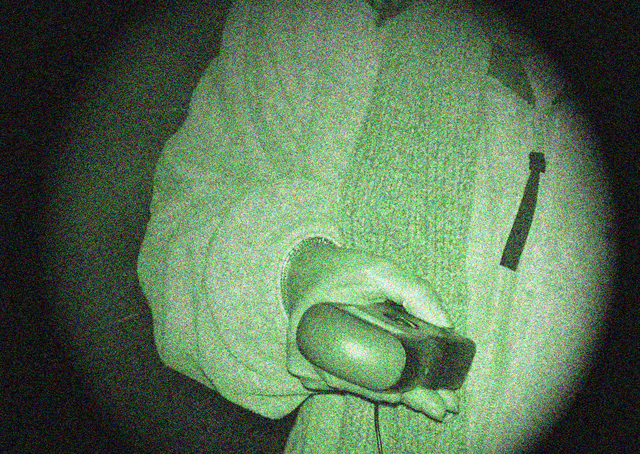
One notable episode during my quarantine binge was from season two. ‘‘Ghostly Grace and The Palladium’’ is a perfect example of a classic Ghost Hunters‘ episode. For shows episodes that weren’t spectacular (by this, I mean that there was no astounding evidence of a disembodied voice recorded) the format is cut in half. Instead of just one investigation, there’s two shorter anecdotes.
In ‘‘Ghostly Grace and The Palladium’’ the first half is about an average home in Holliston, Massachusetts, that’s haunted by a female spirit named Grace. The mother, Laura, is concerned about her young daughter’s fear of the spirit. Throughout the episode, the TAPS team disproves aspects of Laura’s house she was convinced to be haunted. Although there are unexplained moments, a few of the team members get dizzy in the basement, Jason and Grant conclude that the house isn’t haunted. They explain to Laura and her daughter that even though many people have lived in the house before them, it’s not a reason to be afraid. And then the TAPS team packs their equipment into the van and moves on to the next haunted house.
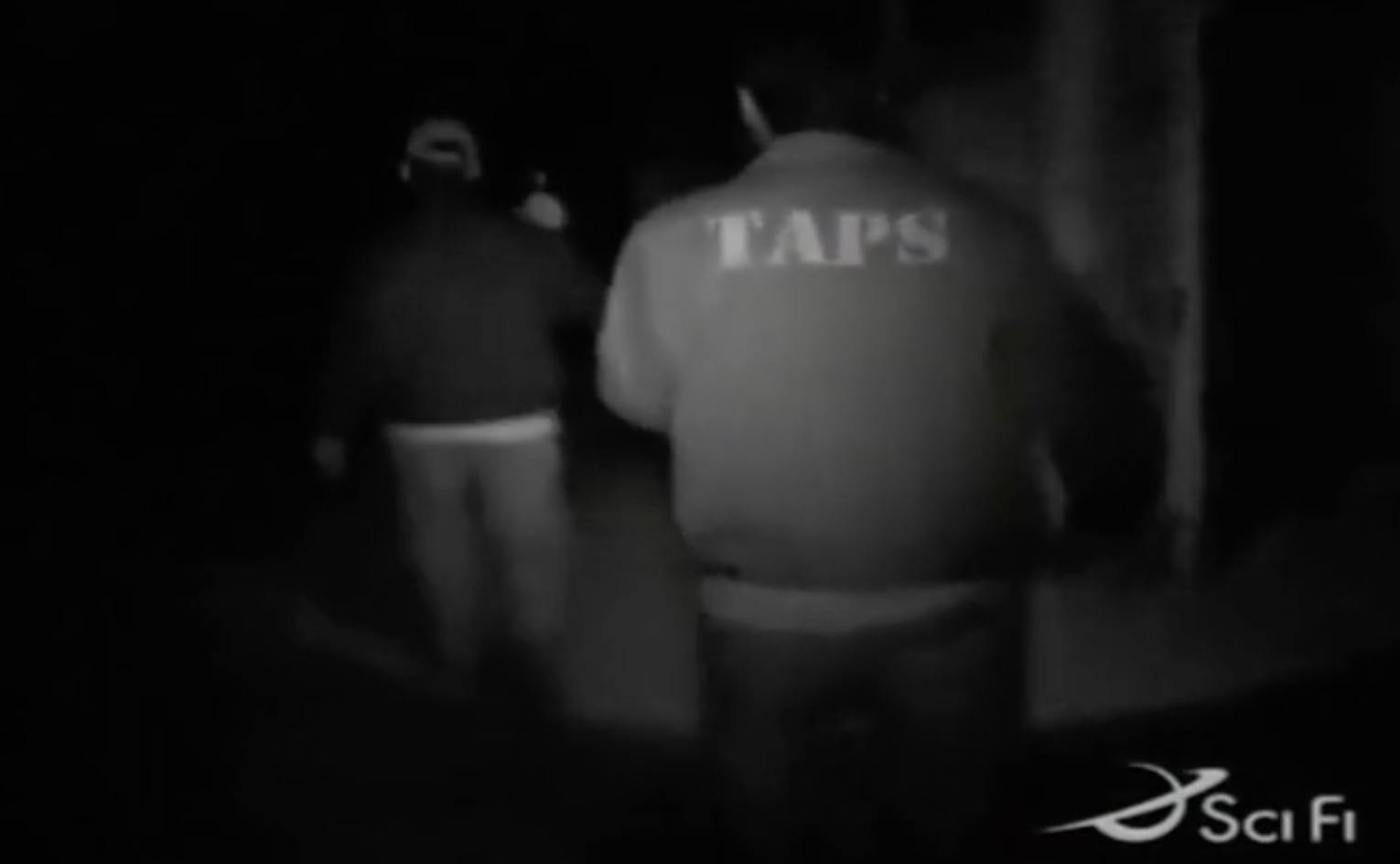
When I first viewed the series, it wasn’t the jump scare episodes in historically rich locations that I found most interesting. Instead, it was the episodes like ‘‘Grace and The Palladium’’ which stuck in my memory. I loved when Jason and Grant couldn’t find any substantial evidence but also couldn’t concretely prove there was no paranormal activity. The best they were able to do is the sit the family down and shrug their shoulders. At most, their consolation was that if a ghost did reside in their cozy home, it wasn’t harmful, and the family should learn to live with it.
After watching five seasons, I noticed a pattern. Every time an episode was about a family’s house, especially when a child was involved, Jason and Grant rarely concluded that there was a menacing haunting. Even with questionable audio clips, the TAPS team would brush it over. It was slightly endearing, to see a reality TV show caring about the fears of family and kids. In a New York Times article from 2007, that deals with a similar episode, the reviewer, Virginia Heffernan, writes, ‘‘Ms. Suburban House feels much safer when the TAPS team leaves. She resolves to have her husband fix the banging pipe. The roaring toy doesn’t seem as if it will cause much harm. And everyone goes back to normal, living in a world that both does and doesn’t have ghosts.’’ It reminded me of the natural reaction we have when a loved one is ill. We keep reassuring them they’ll be alright, even if we no idea how bad it’ll get or if they’ll ever get better.
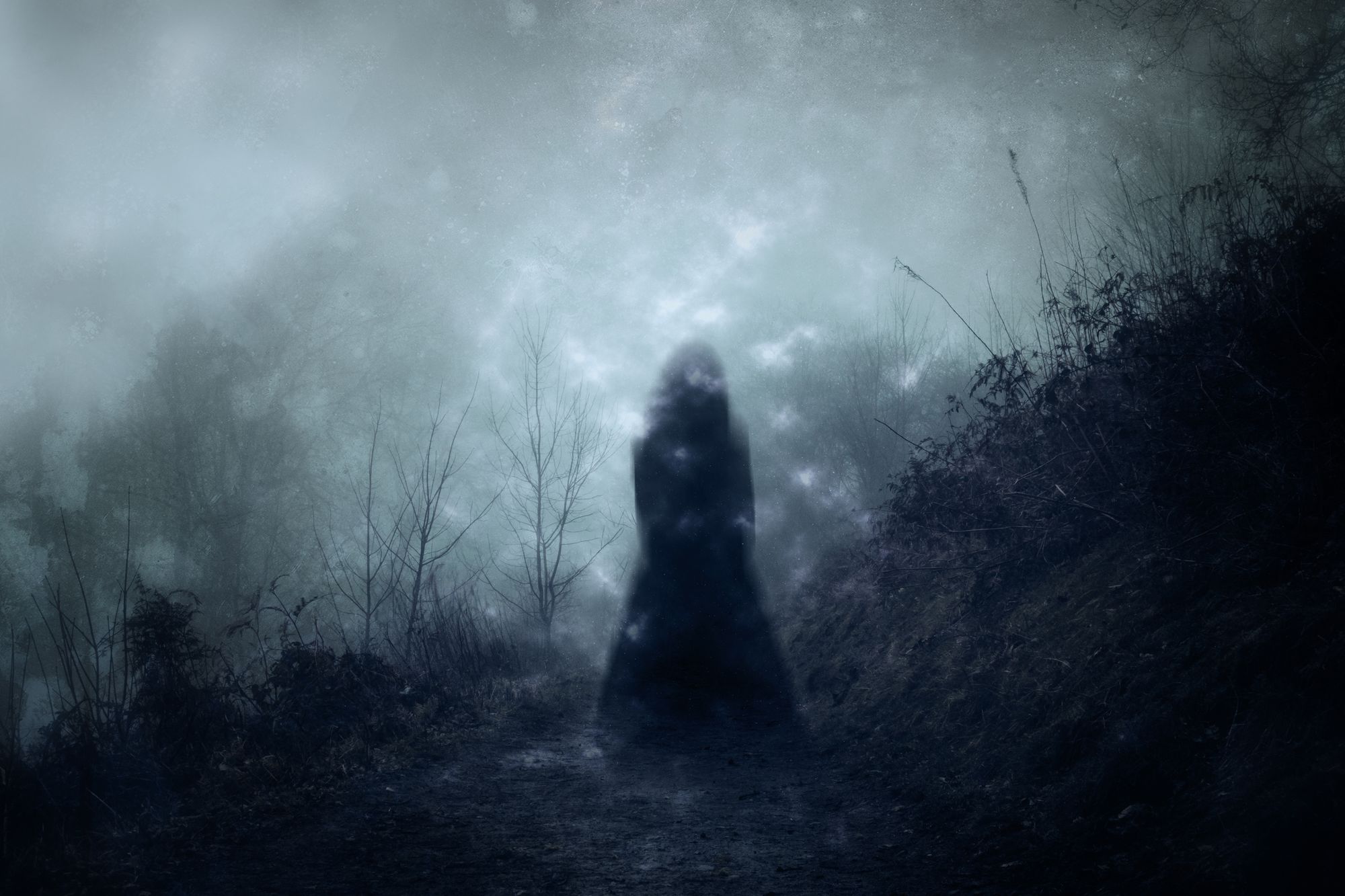
There’s an instinctive desperateness in the idea of an otherworldly presence tormenting the living. It’s the same desperation I think of when I reflect on how Covid-19 has lingered inside our homes and altered our perceptions of the world. Throughout 2020, as I watched Ghost Hunters and grappled with the pandemic, sickness and the supernatural merged into one anxiety inducing entity.
It didn’t matter how many times I refreshed my browser to see updated New York's Covid-19 statistics, I didn’t have the power of a seer to know when life would resume. And the TAPS team could collect millions of videos and audio recordings, but the team most likely wouldn't find tangible ghostly presences. A definition for hunter is, ‘‘one that searches for something.’’ You can’t physically hunt a ghost. And if you don’t believe in religious exorcisms, there’s no way to get rid of them. Like my anxiety to construct meaning from quarantine, the TAPS team was anxious to find something despite no solutions in sight. In the end, the people who hired Jason and Grant still had to deal with the daily reality of a haunted house.
Ghost Hunters showcases the fear and anxiety much of the American public has generated for death, ghosts, and the afterlife. It’s a lack of comfort in the unknown that I believe makes Ghost Hunters such a cult classic. The Ghost Hunters' scientific approach is the temporary balm to a greater, sedentary discomfort within us. At the time, I didn’t see my situation in quarantine as a mirror of the mother and daughter that convinced a ghost named Grace occupied their home.
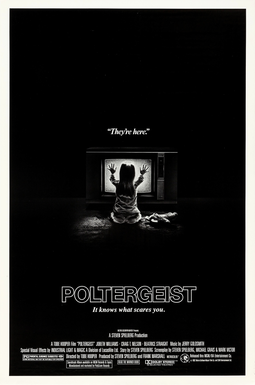
This uneasiness with the supernatural, which reflects Western society’s rejection of the unknown, isn’t a new theme in media. Around the time I was introduced to Ghost Hunters, I also decided to re-watch the 1982 film, Poltergeist. I regretted re-watching Poltergeist because it annoyed and frightened me simultaneously. Much like Ghost Hunters, Poltergeist is focused on the supposed centerpiece of family in 1980s; white, affluent suburban life. The Freeling family lives in a ‘‘planned community’’, which is the antithesis of the traditional idea of an old, hauntedhouse. Exaggerated, insane events take place and soon the youngest child, Carol Anne, gets sucked into the closet in her bedroom. The Freeling’s have their own, maybe even goofier than TAPS, version of paranormal hunters come to investigate. A spiritual medium also assists the family to get their lives back to normality. In the last ten minutes, the Freeling’s discover their house was built on a graveyard and they check into a Holiday Inn to return to their sunny, suburban daydream.
The glaring ideological difference between Poltergeist and Ghost Hunters is that since Poltergeist is fictional it concludes with a neat ending. It delivers the finale the audience desires. There are no lingering questions. The film assures us that, of course, Carol Anne is reunited with her family. There’s also a definite answer as to why the Freeling family experiences these tragedies. If the director, Tobe Hooper, was trying to critique suburban lifestyle, he instead reaffirmed the Western fantasy of a linear story. Not including the sequels (I won’t go into the alleged curse of the Poltergeist franchise) Poltergeist is one of many mainstream horror films that let us continue to believe the glossy idea that there’s no unknown part of the universe humanity can’t conquer.
Putting aside the unrealistic sentiments of Poltergeist, I do think we all hope to be the mother, Diane Freeling, when she saves Carol Anne from the paranormal entity terrorizing her home. We want to be the ones to save the day, to have the power to reduce our fears to insignificance. Most of us never imagine that in real life we will be like the TAPS team; eagerly gathering evidence but only to be left with no definitive answer.
I certainly didn’t imagine I’d be consumed by anxiety as soon as tragedy inflicted the world. I thought I was fearless.. It’s a rude awakening but maybe it was for the best. Western society’s rejection of the unknown isn’t helping any of process the discomforting events of our lives. Like Jason and Grant’s philosophy for the Atlantic Paranormal Society, I prefer now to acknowledge the anxious unknown rather than be in the delusion of assuming I’ll know what will happen next. I’d also rather watch reruns of Ghost Hunters on the couch with my family than Poltergeist any day.
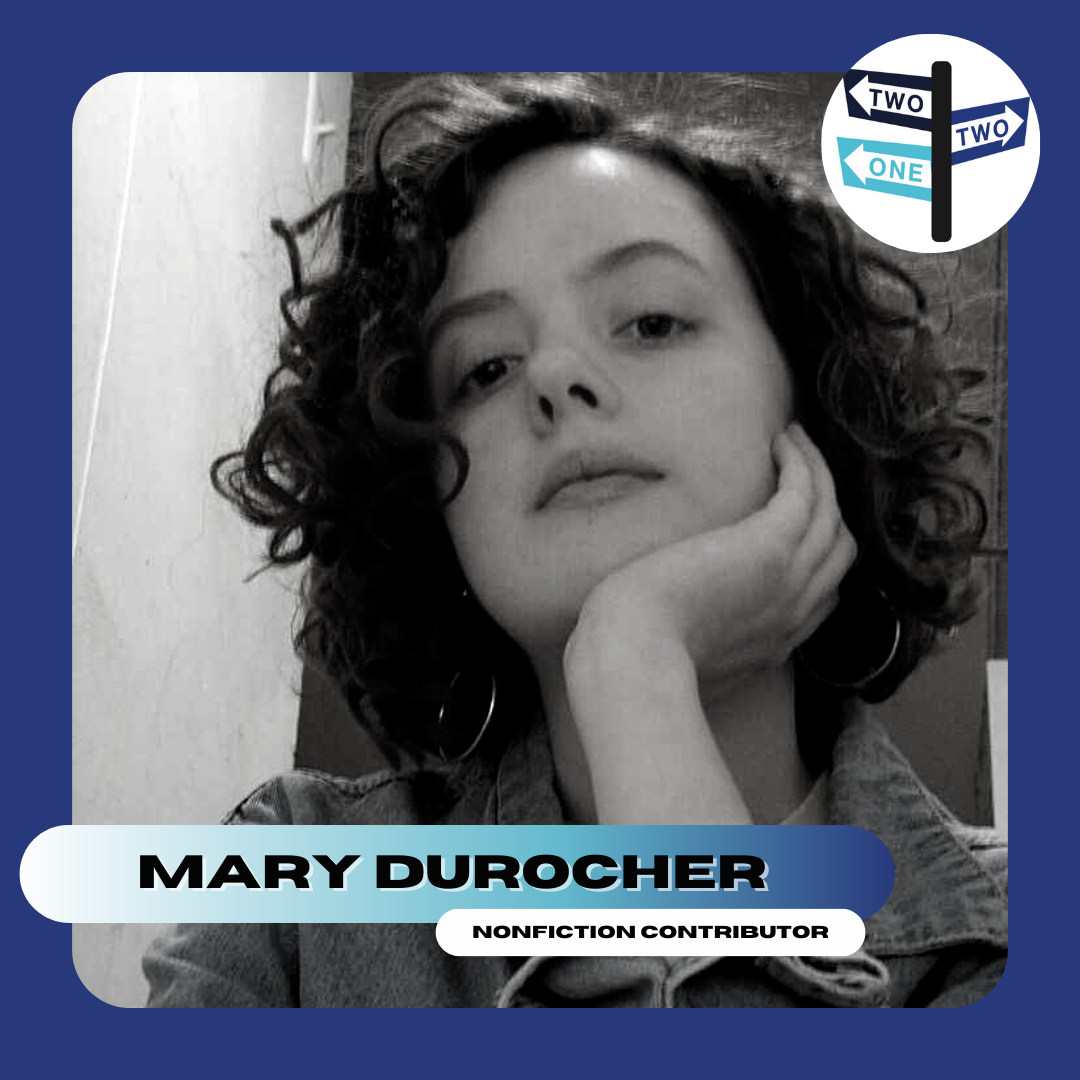
Mary Durocher is a poet, fiction writer, amateur cultural critic. She's currently a junior studying English and World Literature and Digital Journalism. She enjoys coffee shops, bookstores, and going to the park.
